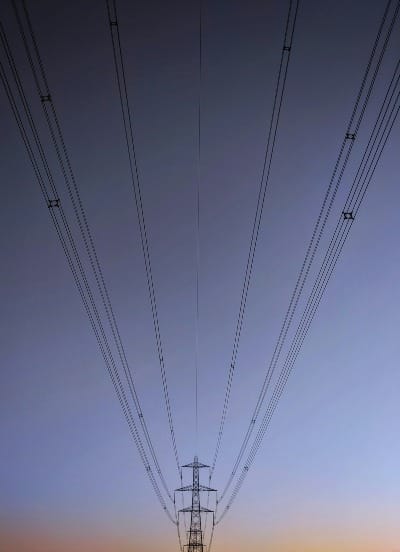Reinvest in Retrofit : How To Use The Great Energy Windfall Profits

Citizens Advice Report on Energy Network Companies’ Windfall Profits
The Citizens Advice report, "Debt to Society" (Feb 2025), reveals that UK energy network companies have reaped windfall profits of £4.5 billion since 2021 due to flaws in price controls set by Ofgem.
These profits, which were not linked to improved consumer outcomes or operational efficiency, were largely driven by inflation miscalculations in Ofgem's pricing framework.
Key Findings:
- Financial outperformance of £4 billion (out of the £4.5bn total) was a windfall rather than earned through efficiency or better service delivery.
- Energy debt among UK households now stands at £3.8 billion, almost equal to the windfall gains energy networks have made.
- 5 million people live in households struggling with energy debt.
- Electricity transmission companies alone made £2.09 billion in excess profits—a 50% increase compared to expected returns.
- Gas distribution profits exceeded forecasts by £1.1 billion, despite customers struggling with rising energy costs.
- Household energy network charges have increased by 15% in real terms since 2021—adding £1.2 billion in costs to consumers annually.
- Outperformance in borrowing costs (debt financing) alone accounted for £3.9 billion of the windfall. This means network companies were allowed to charge consumers inflated borrowing costs, despite actual costs being lower.
- In 2023, Ofgem reviewed the inflation impact but decided not to intervene, citing concerns over "regulatory stability" for investors.
- Return on equity (RoRE) remains excessive, with energy networks averaging 10-14%—far above the level Ofgem deemed fair.
- Ofgem’s own regulatory mechanisms failed to prevent these windfalls, despite previous commitments to tighten controls after earlier overpayments in RIIO-1.
- Network companies continue to significantly underspend their allowed budgets, delaying investment while still claiming high revenues.
- Ofgem has failed to publish comprehensive annual performance reviews of these companies, reducing transparency for consumers.
- The government’s push for "net zero" and clean energy infrastructure has led to major new investments, but cost-benefit reviews are lacking, meaning consumers may be overpaying for these upgrades.
- Companies’ voluntary contributions to consumer relief have been minimal, despite windfall gains.
- Previous research (2017 & 2019) found consumers had already been overcharged by billions of pounds in past regulatory cycles.
- Ofgem’s 2025 plans for RIIO-3 aim to fix the inflation loophole but fail to address past windfalls.
- The current system lacks strong consumer protections against future overcharging.
- More transparency is needed in how price control allowances are set and adjusted.
- Debt relief programs could help mitigate the financial distress faced by millions of energy customers.
- Public trust in energy companies is deteriorating, which could undermine support for net zero infrastructure investment.
A Response from Refurb & Retrofit Magazine: Investing Windfall Profits into Sustainable Housing Upgrades
How £4.5 Billion Could Fund the UK’s Retrofit Revolution
Homes that hemorrhage heat, waste energy, and trap people in fuel poverty are not what we need. The latest Citizens Advice report is clear: energy network companies have pocketed billions in unearned profits, while 5 million households struggle to keep the lights on.
So, what if we redirected those windfalls into transforming the UK’s housing stock?
Retrofits Over Profits
We know that poorly insulated homes are a key driver of energy poverty—leaking warmth in winter and overheating in summer. One-third of UK homes have EPC ratings of D or worse, meaning they waste energy every day. Meanwhile, retrofitting these homes with better insulation, heat pumps, and energy-efficient glazing could slash bills by 40-60%.
The £4.5 billion in excess profits could be the catalyst for the biggest home energy upgrade program in a generation. Here’s how:
- £1.5 billion could retrofit 500,000 homes with insulation and heat pumps, immediately reducing household energy bills.
- £1 billion could fund a National Retrofit Training Scheme, skilling up thousands of tradespeople to install energy-efficient solutions.
- £1 billion could support social housing retrofits, ensuring vulnerable communities benefit first.
- £500 million could expand local authority energy efficiency grants, targeting low-income households in fuel poverty.
- £500 million could help small businesses and landlords upgrade rental properties, improving efficiency across the private housing sector.

Retrofit vs. Energy Debt: A Win-Win
The £3.8 billion energy debt owed by households is almost identical to the windfall these companies have made. Instead of forcing struggling families into debt repayment schemes, network companies could fund a national energy efficiency drive—lowering bills permanently rather than issuing short-term handouts.
We need to start fixing a broken system - that means fixing the broken bucket not refilling it.
The UK cannot afford a housing stock that burns through energy faster than we can decarbonize it. Net zero will not be achieved through profit-taking—it requires investment in long-term, sustainable infrastructure.
We already know that DNO approvals for connecting to the grid are one of the most easy to fix problems with decarbonising heating - who is going to pay for improvement like this?
Time for Ofgem to Enforce a Social Contract
Energy network companies operate as monopolies, meaning consumers have no alternative but to pay what’s demanded. With no market competition, their profits must come with a social contract: deliver fair prices, transparent spending, and reinvest in public benefit. Right now, that contract is broken.
A mandatory "windfall retrofit fund" should be established, directing excess profits into mass home upgrades. With £4.5 billion at stake, we could retrofit over a million homes, drive down bills, and create a skilled workforce for a low-carbon economy.
Retrofit First, Profits Later
Energy firms must decide: continue extracting unearned billions while consumers freeze, or reinvest in a housing revolution that benefits everyone. The answer is clear—retrofit now, or risk a crisis of public trust that will be impossible to repair.
It’s time to put windfall profits to work where they belong—in homes, not in shareholder pockets.
